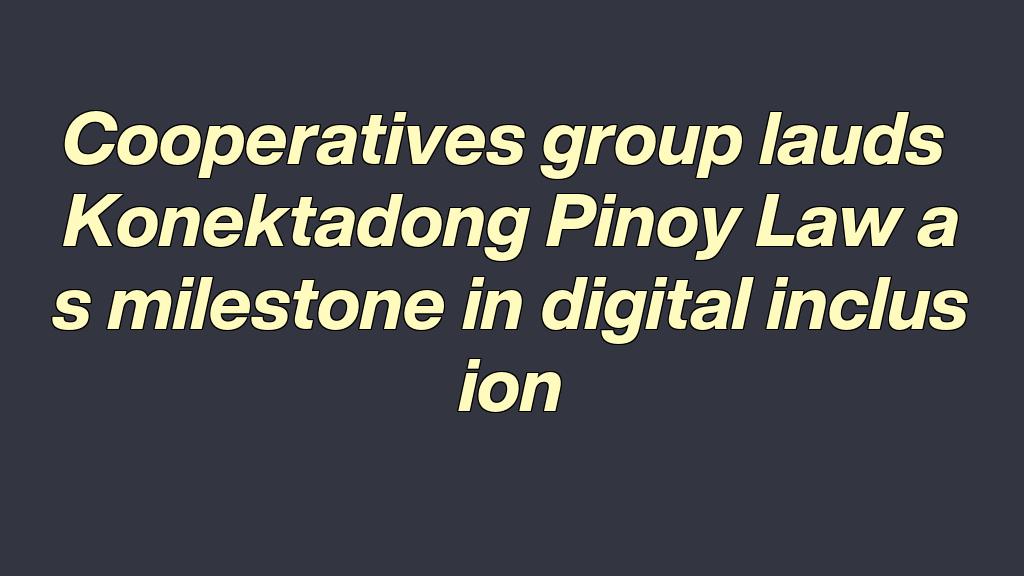THE National Confederation of Cooperatives (Natcco Network) welcomed the enactment of the Konektadong Pinoy Law, describing it as a landmark measure for expanding digital access and financial inclusion in the Philippines.
Formally known as the Open Access in Data Transmission Act, the law lapsed into effect on Aug. 24.

It removes the decades-old requirement for a legislative franchise for new internet providers, allowing more players to enter the market.
The measure also promotes open-access policies, encourages infrastructure sharing, and seeks to accelerate broadband rollout to improve affordability and bridge digital divides — particularly in rural and underserved areas.
Natcco, a federation of 1,051 cooperatives serving more than 7 million members nationwide, had endorsed the bill’s passage.
On May 1, its board of directors approved a resolution supporting the measure, stressing that reliable and affordable connectivity would help cooperatives digitize operations, expand mobile services, and create new economic opportunities.
“Enhanced connectivity empowers cooperatives, especially those in rural communities, to deliver services efficiently and promote inclusive growth,” the resolution stated.
The group noted that poor internet access has long hampered cooperative services in the countryside, forcing members to travel long distances over poor roads and limited transport options just to complete basic transactions.
With the law now in place, Natcco urged the Department of Information and Communications Technology and other regulators to ensure that the implementing rules and regulations (IRR) uphold fair access principles, enable cooperative-led broadband initiatives, and safeguard data security for end-users.
The IRR is expected to be drafted within 60 to 90 days., This news data comes from:http://www.705-888.com
Cooperatives group lauds Konektadong Pinoy Law as milestone in digital inclusion
The group also emphasized that reliable internet is critical to the operations of credit cooperatives, whose services depend on smooth interconnection among branches and online financial transactions. “Internet is key to financial inclusion,” Natcco said.
The Philippines has consistently ranked among the countries with the slowest and most expensive internet in Southeast Asia. Franco Jose C. Baroña
- Most Filipinos distrust China, see it as biggest threat — OCTA survey
- Ukraine's children start new school year in underground classrooms to avoid Russian bombs
- Heavy rain falls in parts of Southeast Asia after tropical storm blows into Vietnam
- Need to pee? Japan has QR code for that
- Hontiveros wants Senate to probe Chinese who pretended to be Filipino
- NBI slaps Alice Guo, 35 Others with new graft, misconduct cases
- Brawner orders troops: Stop China from boarding BRP Sierra Madre at all costs
- Israel launches new spy satellite in 'message' to enemies
- Israeli strikes in Yemen's capital kill six, Houthis say
- Over 800 killed as quake rocks Afghanistan